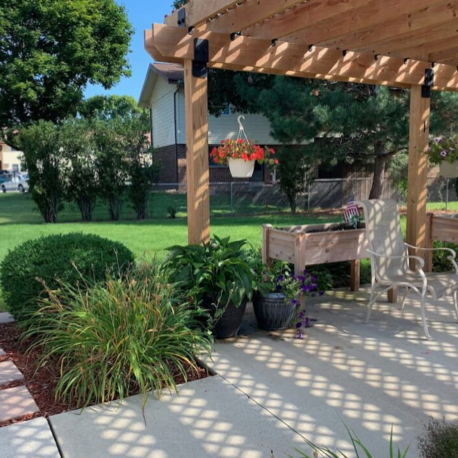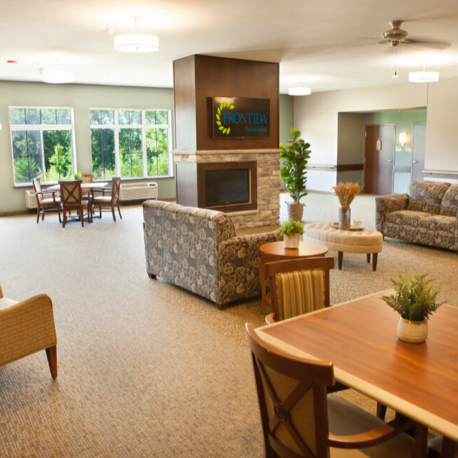Alzheimer’s disease can sometimes pose unique challenges. These challenges don’t just involve your loved one—over time, they can affect the whole family. Conditions like Alzheimer’s disease often start so subtly that they go undetected, but recognizing the early signs means your family can act quickly. So what are the early signs of Alzheimer’s in seniors?
Alzheimer’s disease causes memory problems, issues with problem-solving, behavioral changes, and more. It’s a complex condition, but knowing what to watch out for is key. This way, you can get your loved one the care they deserve.
What Is Alzheimer’s Disease?
Alzheimer’s disease is a neurodegenerative disorder. It tends to develop after the age of 65, and it progresses gradually over time. It accounts for roughly 60-80% of all dementia cases.
Alzheimer’s disease progresses through several stages. In its earliest forms, it’s easy to mistake for age-related forgetfulness. However, as it worsens, the symptoms become much more noticeable.
Detecting Alzheimer’s early plays a critical role. Early diagnosis allows families to plan for proper care and adjustments to slow its impact. So what signs should you look out for?
Common Memory Challenges in Alzheimer’s
Memory problems are among the earliest and most recognizable signs of Alzheimer’s. They often begin with small lapses that grow larger over time. However, as such issues worsen, the resulting memory-related challenges can disrupt your loved one’s everyday life.
For example, your loved one may forget recent conversations or repeatedly misplace essential items, like their glasses or car keys. It’s also common to forget appointments or to struggle to recall important dates.
Struggles with Problem-Solving & Organization
Planning and problem-solving become difficult for people in the early stages of Alzheimer’s. Over time, these problems become more significant.
Budgeting and paying bills might become confusing, causing missed payments or financial errors. Cooking meals or following routines both become more complicated. These struggles often lead to frustration, which quickly affects quality of life.
Recognizing such difficulties is an important step toward offering support.
Losing Track of Time or Location
Confusion regarding time and place is another common Alzheimer’s symptom. Your loved one might forget what day it is, the season, or even the current year. Though this seems like nothing more than mild frustration, it can be a significant problem.
For example, confusion might cause your loved one to end up somewhere they’ve never been before, or they might get lost in a once-familiar location. This can leave them anxious, or even put them at risk. At this stage, it’s essential to be patient and understanding.
Shifts in Mood & Personality
Mood swings and changes in personality tend to develop as Alzheimer’s disease progresses. Your loved one might seem increasingly anxious, suspicious, or withdrawn. They may even showcase signs of agitation and frustration, which sometimes manifest as emotional outbursts.
Such changes can sometimes be hard for family members to process. At such times, it’s important to remember your loved one is living with a complex neurological condition.
It can be challenging to care for a loved one with these symptoms on your own. If your loved one develops significant personality changes, it’s likely time to consider memory care.

Trouble With Spatial Awareness
Vision is an important part of safely navigating the environment around you. However, Alzheimer’s disease can affect how your loved one processes the world around them. This can lead to issues with spatial awareness, which can cause:
- Difficulty judging distances
- Problems recognizing objects or obstacles
- Increased risk of falls or collisions
- Challenges with navigating familiar spaces
You might notice your loved one hesitating when navigating stairs or bumping into objects more frequently. Pay attention to these problems—they can quickly affect your loved one’s independence and quality of life.
Communication Challenges
As Alzheimer’s progresses, it can affect how a person communicates. Your loved one might struggle to find specific words or frequently pause in conversations. These struggles may lead them to avoid communicating as much as they used to.
Fortunately, with some small changes, you can continue communicating with your loved one. It takes time, but it is possible. Stay positive and keep things simple, and don’t forget to encourage your loved one wherever possible. This is key to uplifting their spirits.
Poor Judgment & Decision-Making
One significant problem Alzheimer’s can cause is a change in judgment. Your loved one may make unusual decisions that don’t quite make sense to others.
Sometimes, this is a minor inconvenience. However, a change in decision-making can have serious consequences. Your loved one might make unusual financial decisions, such as giving large sums of money to strangers. They may even be unable to recognize hazards, which puts their well-being at risk.
These issues can be challenging to identify. However, recognizing a shift in your loved one’s patterns and personality often indicates a need for memory care.
Social Withdrawal & Loss of Interests
Alzheimer’s disease can even affect social abilities. Your loved one may become less interested in social events and may also show little interest in hobbies or activities they once enjoyed. Changes in mood, personality, and communication skills can also make it more challenging to connect with others.
However, social interaction is crucial for older adults living with Alzheimer’s, as it’s closely linked with all kinds of cognitive benefits. It helps to start small and encourage simple, lighthearted activities, to help your loved one re-engage when they can.
Is It Time for Memory Care?
The early signs of Alzheimer’s can be difficult to spot. However, a proactive approach can make a world of difference for both your loved one and your family. By spotting symptoms early and approaching the situation with kindness, you can get them the care they deserve.
If you’re ready to learn about how we can support your loved one, contact our team at Riverwood Senior Living. We’re ready to help your loved one every day, and we’re here for your family. Schedule a tour with us today, and take the first step towards helping your loved one in a way that makes a true difference.







